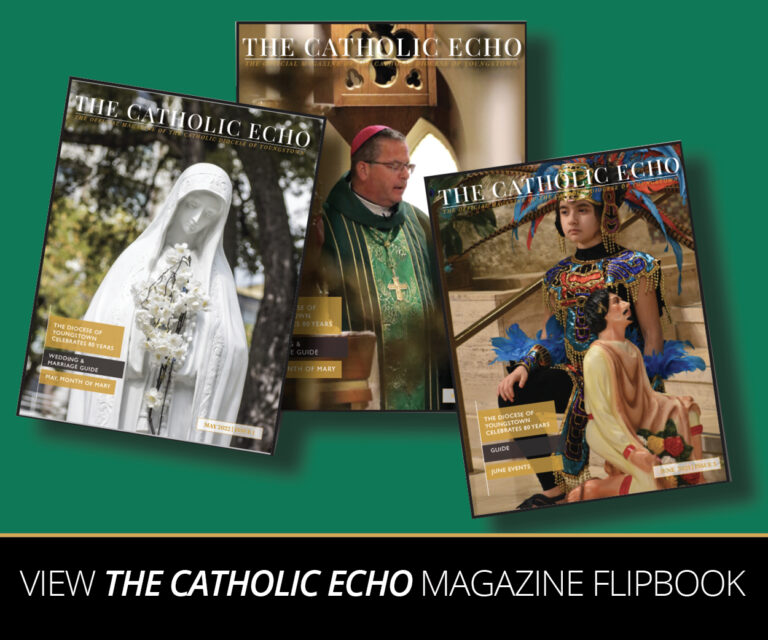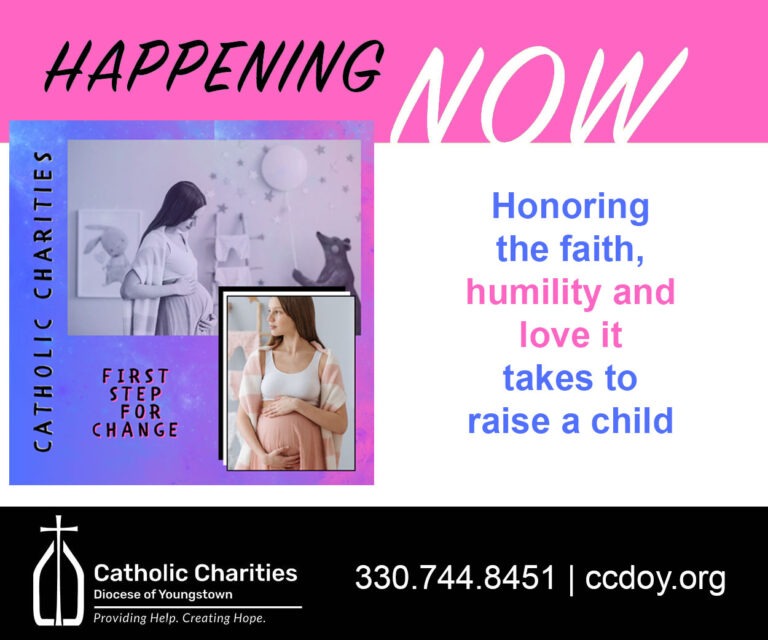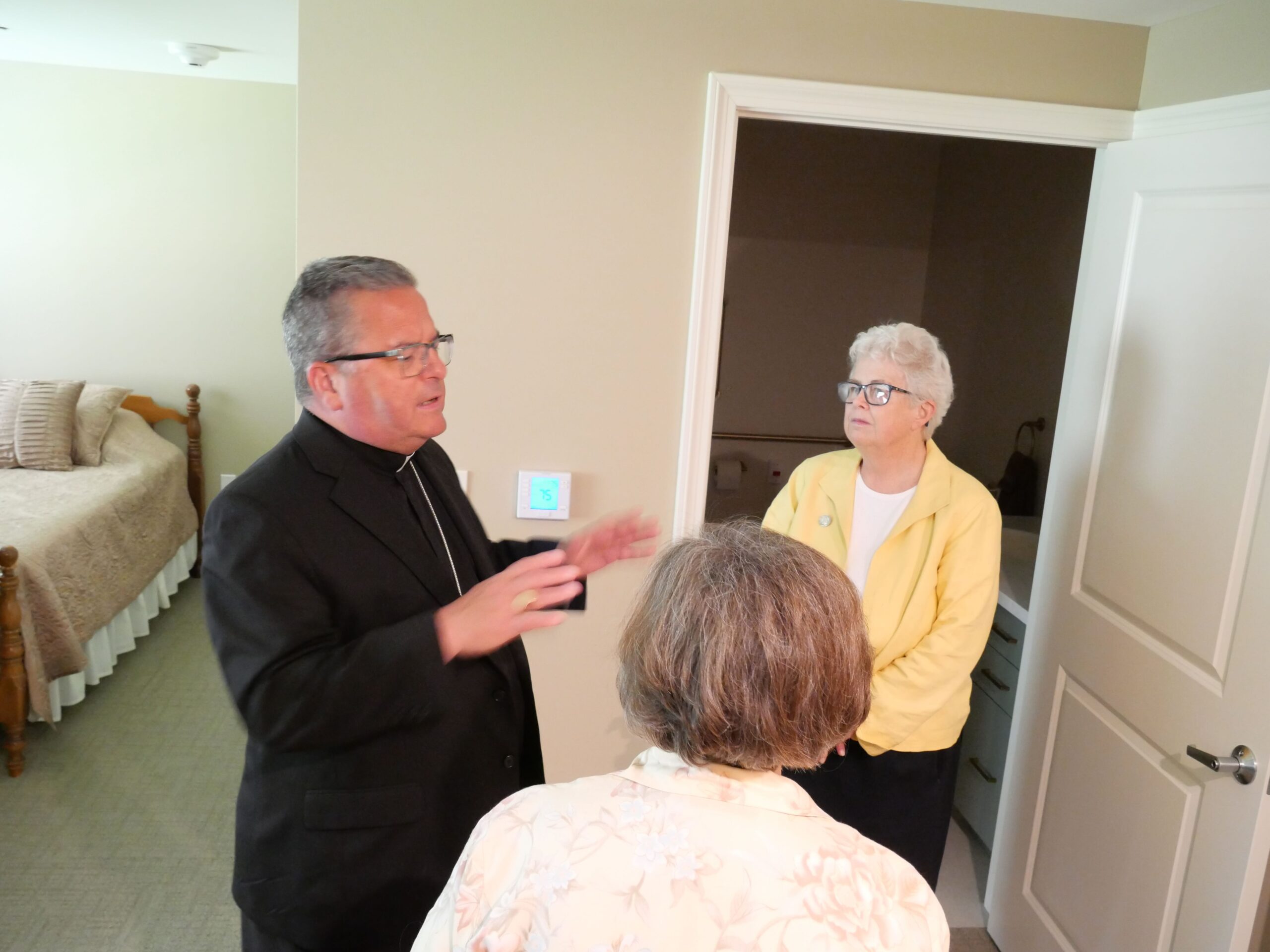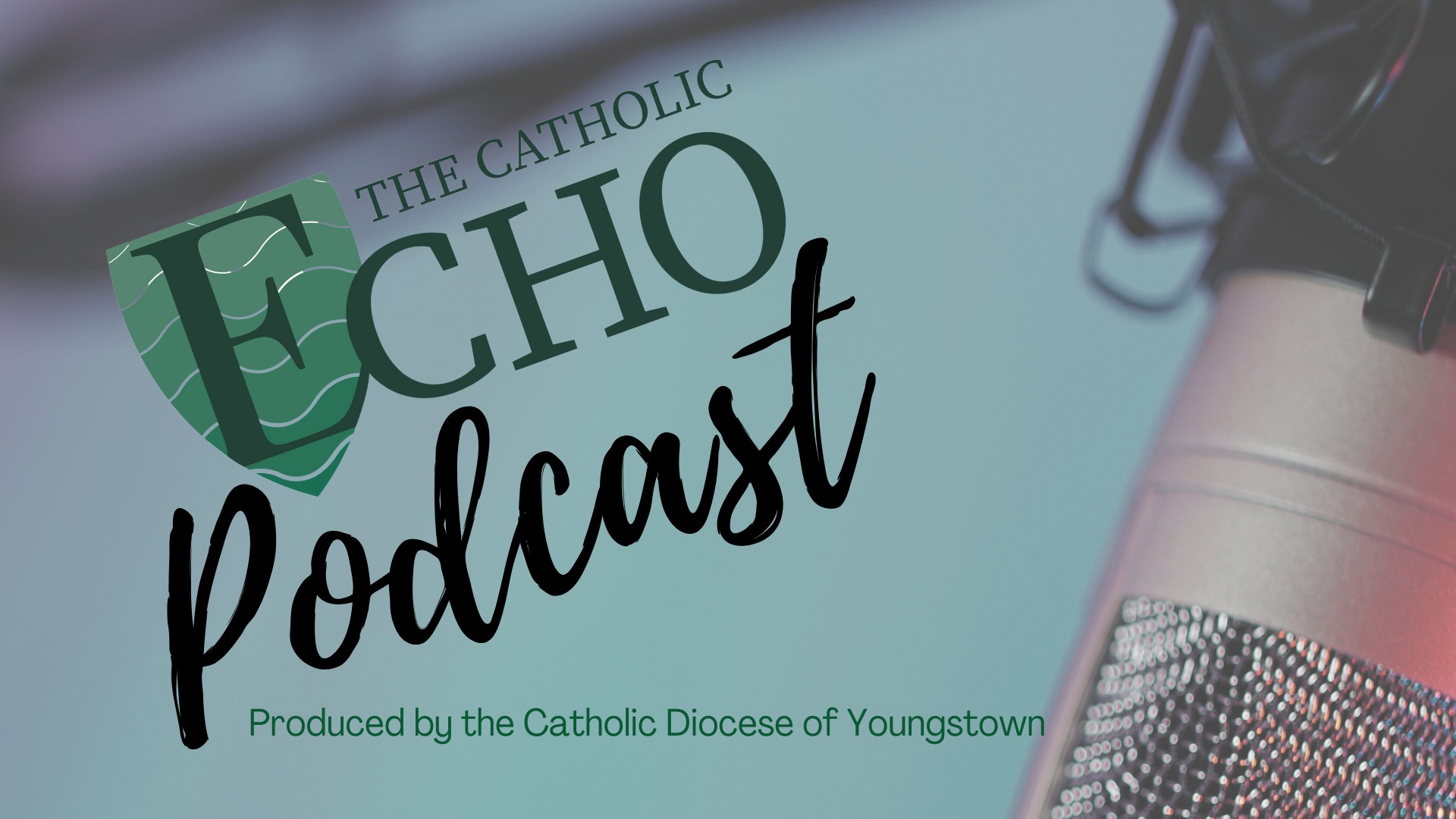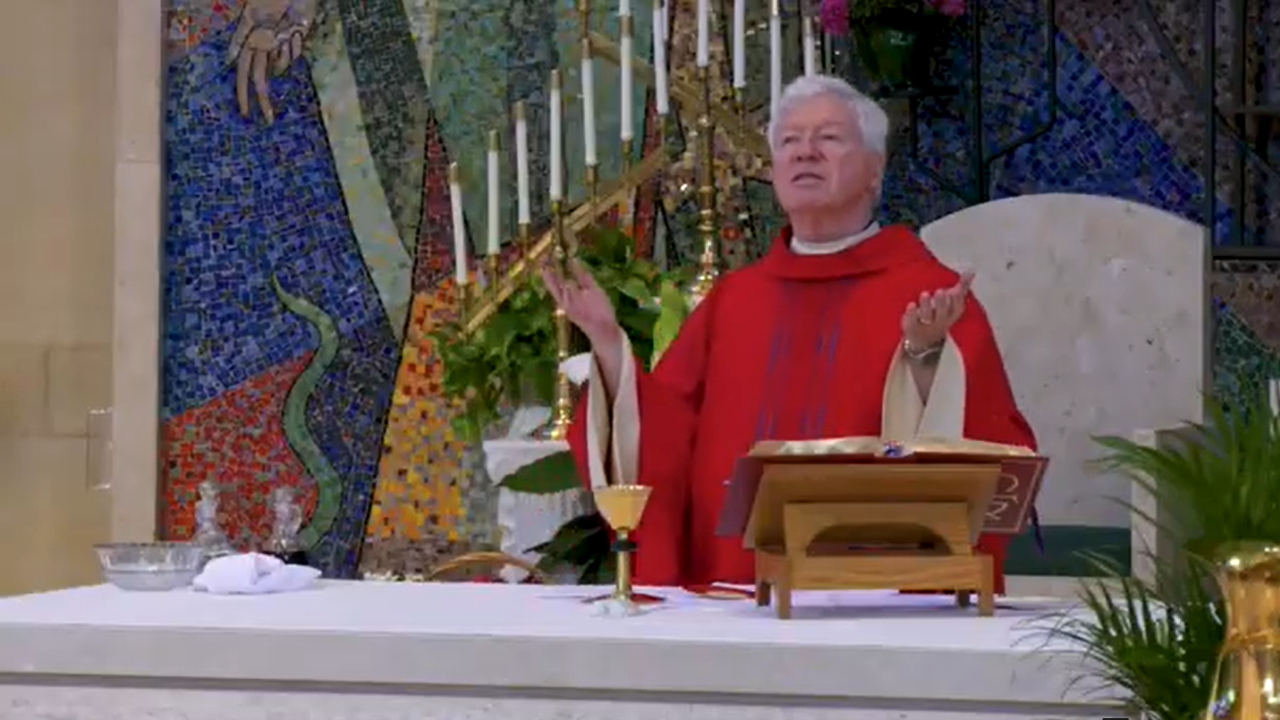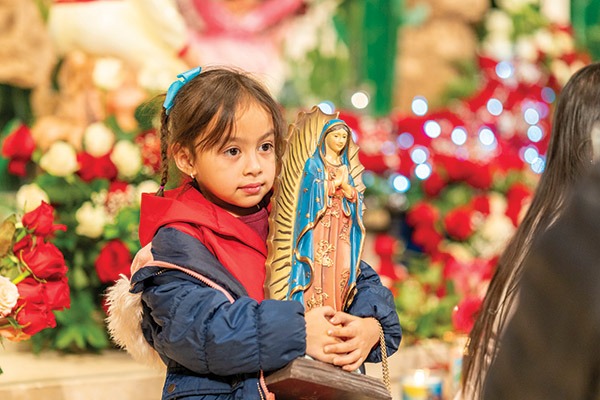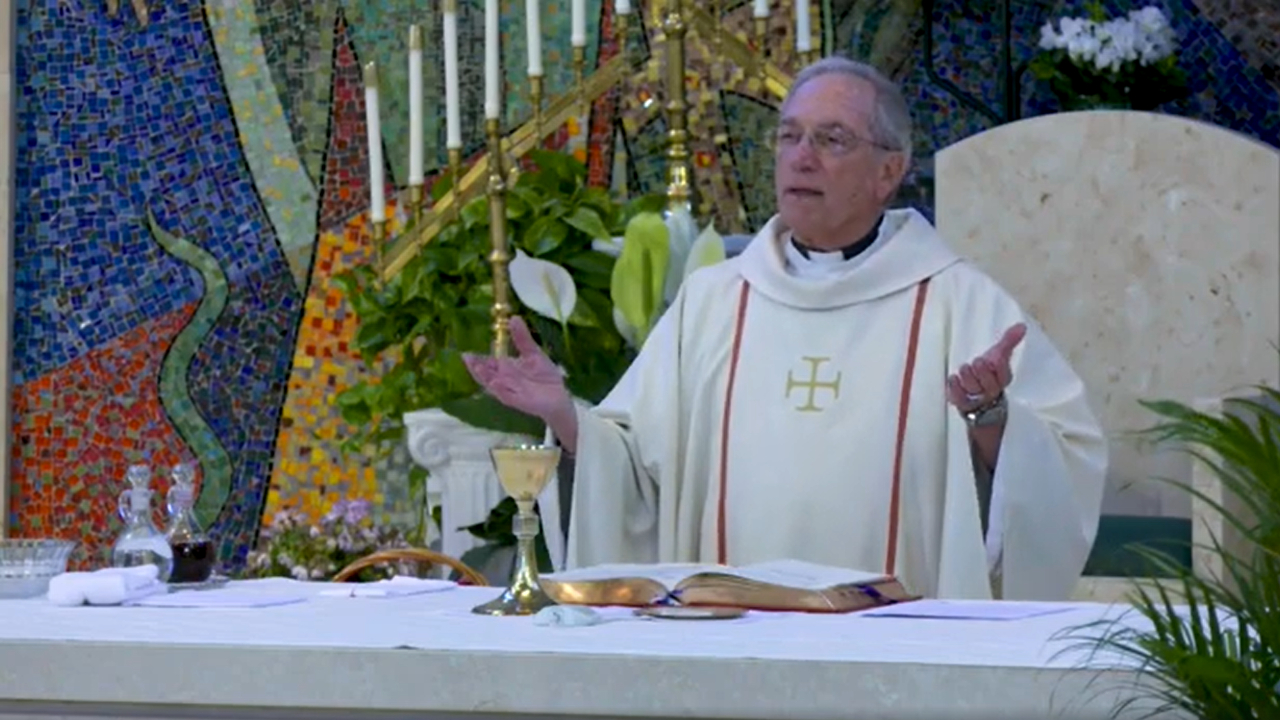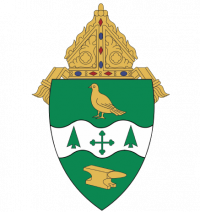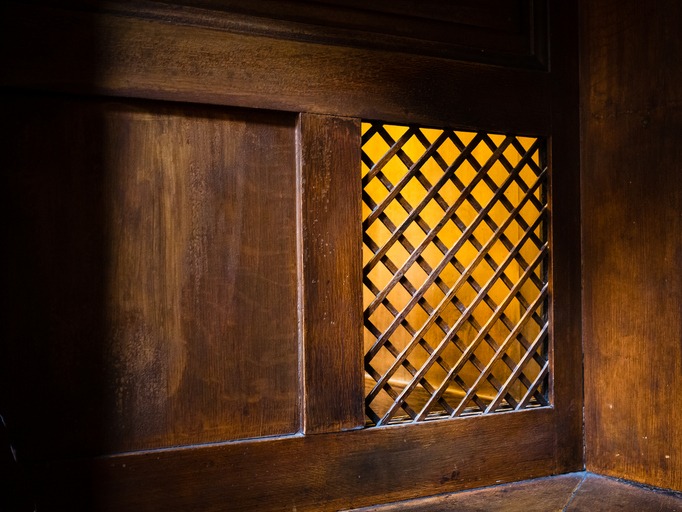
Two of the most precious encounters of my life were while waiting in line to go to Reconciliation and talking to the people around me. I know—we are not supposed to be chatting—we are supposed to be reflecting, but my relationship with Reconciliation has not always been the best, so these moments eased my reluctance and my nervousness to such a degree that I cannot possibly thank the two women enough.
The first was a woman younger than I, who had just attended a funeral and noticed that Reconciliation was starting right afterwards. She turned around to speak to me first, and every word she spoke was reassuring. Though I had not told her that I was nervous, she sensed it and she shared the sacred words of the love that God has for me, for us. She also indicated to me that she felt our meeting was no coincidence and I knew it to be just as she said. I felt the presence of God with the two of us.
The second time, again, the person was in front of me. She was much older and my first words to her were, “I would rather be at the dentist’s.” She laughed and nodded in understanding. As we stood there for a time, she observed, “My, people go in there and really have a chat, don’t they?” She confided that this was her first visit to Confession in two years because an illness had kept her away—she was 93. After she emerged from Door #1 rather quickly, it was my turn and she held the door open for me. “He’s really nice,” she said with warmth and reassurance.
On the other side of the confessional, a priest awaits us, prepared to hear our sins and our Act of Contrition—and if all is in order, to grant us absolution of our sins. An amazing phrase from the Bible that should almost take our breath away is, “As the distance of east from west, so far from us does he put our faults.” (Psalms 103:12). Imagine a horizontal line and then imagine it enlarging wider and wider. The two ends would never meet no matter how wide it got. That is what we experience after making a good Confession. We are cleansed of our sins as we encounter the Merciful Christ through his chosen instrument—the priest. The great saint Padre Pio, once said, “Confession is the soul’s bath.” This holy man sometimes spent 19 hours in the confessional because he saw it as a highway to our God.
Father Kevin McCaffrey, pastor of St. Margaret Mary Alocoque Parish in Orwell and Rock Creek says often, “Jesus’ words to Saint Faustina were that the greatest miracles in the world are spiritual resurrections that occur in the confessional.” To confess one’s sins and to be reconciled with God, to pledge to change and to stay away from the near occasions of sin is a wonder, but for someone to return after a 40-year absence is truly the stuff of miracles.
Anyone entering the confessional should know that the priest is bound by the “seal of confession.” This means that what is told in the confessional may not be revealed by the priest under penalty of automatic excommunication. Retired diocesan priest Father Thomas Cebula explains, “The priest hears Confessions ‘in persona Christ,’ that is, ‘in the person of Christ.’ He operates like a heart surgeon—not on physical hearts, but on spiritual hearts and souls wounded and broken by sin and in need of healing and repair. What an awesome experience it is to witness what the Lord’s healing grace and mercy can accomplish within a heart truly given over to repentance and conversion!”
Polls show that more Catholics are going to Reconciliation. Perhaps many people are seeing cracks in society that deeply trouble them and make them wonder: What really matters? Perhaps Reconciliation—this bridge to Our Lord—is the solace for the soul, the unburdening of our sins and the flood of grace that we need to see the future with more hope.
Arguably the most misunderstood of all the seven sacraments both by Catholics and non-Catholics, Reconciliation is one of two sacraments of healing, the other being the Anointing of the Sick. Formerly known as “Confession,” the name “Reconciliation” indicates the beautiful outcome of making a good confession—the reconciliation of our souls with God and our neighbors.
God never distances Himself from us—not even when we sin. It is we who distance ourselves because we feel guilty and ashamed. Mistakes—such as forgetting to attend Mass on a Holy Day—are not sins. Sin is not doing something we do not know to be wrong, such as a young child using a bad word he heard somewhere. Although morally wrong, sin is always presented under the appearance of good at the beginning. If sin were like getting burned by a hot pan, no one would sin. For it to be sin, we must know something is wrong, and with free will, do it anyway.
What are some of the reasons why Catholics avoid confession or go only sparingly?
- Fear: The person may have had a bad experience at one time or is not sure about what they are supposed to do. If it has been a while, the person may have forgotten the Act of Contrition or how to begin the sacrament.
- Embarrassment: We may feel shame and disgust with ourselves and are angry at ourselves for making bad choices. Instead of confronting our sins, we tend to hide from them at times.
- A person with low self-esteem may want to avoid feeling even worse, worried that the priest will judge them.
During Marriage Encounter weekends, one of the oft-repeated phrases is, “Feelings are neither right nor wrong.” Oh, so true. But what a person decides to do with those feelings can surely be right or wrong. Feeling fear, embarrassment or guilt can be overpowering, but Catholics need to work through these fears and shoulder through them with God’s help. The grace and the spiritual strength that God gives us by confessing is transformational and way more than worth the effort.
Helpful Tips Regarding Reconciliation:
- Call upon the Holy Spirit to make an examination of conscience. This might be one time that using your cell phone would be just fine. Just search, “Examination of Conscience,” and there are several good websites that will lead the reader through a series of questions to guide them.
- Reflect and pray on passages from the Bible that relate to sin and God’s remedy for it.
- Ask for light and discernment from the Holy Spirit to get to the root of your sins.
- Speak to the priest as though he was your personal physician. Remember, the most important person in the Confessional is Jesus Christ.
- Avoid the laundry list approach. Use a more conversational method and just talk to the priest. This way you can add context to your situation and help him understand you better.
- Confess every mortal sign and the number of times it was committed.
- We are not required to name all of our venial sins or the number of times committed.
- This sacrament is about confessing, but it is also about repentance.
- Pray the Act of Contrition from your heart and perhaps even in your own words.
- Reconciliation is for confessing our sins. If you need to talk about problems that you are having, make a private appointment with the priest for more extended spiritual direction and guidance. Be thoughtful of those who may be waiting in line.
Going to confession once a year is like using Turbotax once a year. It is easy to forget everything that must be done to prepare your taxes. It is also easy to forget how to make a good confession. By going to Reconciliation more often, it becomes more comfortable, we can more readily remember the sins we have committed, we can genuinely feel the presence of God rather than being distracted by our own insecurities, and we can also find a pattern for our sins—making it easier to avoid them in the future.
A healthy soul promotes physical, emotional and psychological health. Jesus as the Divine Physician came to make us whole. He came to heal what was wounded and to mend what was broken because of our sinful condition. Jesus did not come to condemn the sinner. He came, rather, to save what was lost. Jesus came to make visible God’s healing love and mercy. The good news is that God does not withhold his mercy! Christ, his son, continues to offer to all this same divine love and mercy made humanly accessible by what we see, hear and touch in the sacrament of Reconciliation through the ministry of his priests.
As Pope Francis says, “the joy of God is the joy of forgiveness.” We are all encouraged to experience this joy. The second Sunday of Easter will soon be here on April 27, 2025. It is Divine Mercy Sunday. Be sure to look for times and places where the sacrament of Reconciliation will be offered and celebrate Divine Mercy!

